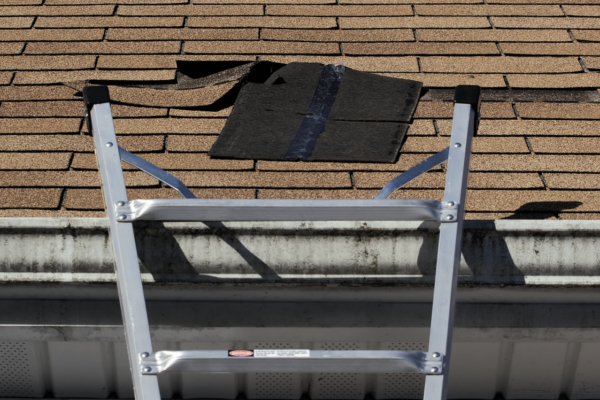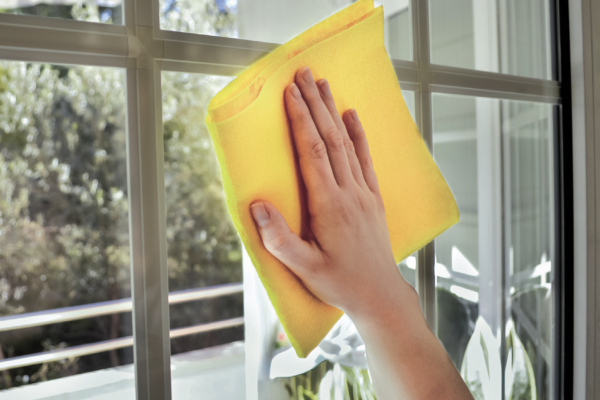Top 8 places to clean and check OUTSIDE
- Clean Gutter
Clean gutters of any leaves, branches, needles or gunk from winter’s storms. Make sure downspouts with splash blocks convey the water away from the foundation. • Look for missing or damaged siding or trim. Repair and replace missing elements and protect your exterior with paint to avoid moisture, rot and insect problems.
- Soil Check
Make sure that soil and bark don’t touch untreated wood framing or siding. Having soil and bark at least 6 inches from your house discourages rot and bug infestation.
- Window + Screen
Check Check out your windows and screens. Fixing broken windows needs to be a priority. If the glazing putty or caulking is chipped, now’s the time to make those repairs. Ripped screens invite insects, spiders and bees.
- Siding
Look for missing or damaged siding or trim. Repair and replace missing elements and protect your exterior with paint to avoid moisture, rot and insect problems.
- Declutter
Take a critical look at your overall property. Create “use someday soon” project piles and “throw out” piles. Make a plan to finish the project piles, then donate or properly dispose of the throw away the pile. To donate building materials consider the Habitat Restore. If you have something you’d like to sell or give away, try 2Good2Toss.com.

Roof Check – Examine your roof. Are there any missing shingles or damaged sections? Take notes to plan your spring and summer projects.
- Roof Check
Examine your roof. Are there any missing shingles or damaged sections? Take notes to plan your spring and summer projects.
- Clean Windows
Wash the outside of your windows. Use a gallon of hot water and a half cup of ammonia. Rinse very well with the hose.
- Check Vents
Open any foundation vents you closed. During a cold spell, it’s okay to close or board up foundation vents. However, it is critical for the health of your house to open those vents come spring. Also, check the plastic ground cover under the house to be sure it is secure.
Top 8 places to clean and check INSIDE

Clean Windows – Wash the inside of the windows. Dust around the window frame and blinds. Clean out the window tracks where mold, dust and dead bugs accumulate.
- Clean Windows
Wash the inside of the windows. Dust around the window frame and the blinds. Clean out the window tracks where mold, dust and dead bugs accumulate.
- Refrigerator Coils
Dust the coils of the refrigerator. Then replace the back cardboard covering the dusty motor to maintain the proper ventilation for the appliance. Also, take the vent off the front of the refrigerator and wash it.
- Appliances
Pull all appliances away from their footprint. Move your stove, refrigerator, freezer, washer and dryer. Then, thoroughly sweep and wet mop behind and under where each appliance gathers lint, toys and food that attracts insects and vermin.
- Furnace
Filters Clean or replace the furnace filter.
- Fresh Air
Open windows and doors for a few hours. This takes the stale smell away and lets out trapped moisture. Also, the extra light and fresh air help kill spores.
- Clean the dryer
Vacuum all the extra lint in and around your clothes dryer, including the exhaust tube and the outside at the flapper vent. A stuck flapper allows critters to nest in your dryer.
- Home Projects
Plan large home maintenance projects. Plan roofing, major repairs, painting exterior, ductless heat pump installation, etc. – around a written scope of work. Contact contractors early to get the apples-to-apples bidding done. That way you will be in your successful, licensed and bonded contractor’s schedule before the busy construction season starts.
Contracts: Have specific, written contracts. Bigger projects go more smoothly when your written contract includes your final scope of work, states how much will it cost including tax and permits, and has start and end dates. It should also contain clauses about labor-material cost of change-orders and how the contractor will get the final payment after all work needing permits is inspected and after you have a written, unconditional lien waiver in your hand.

